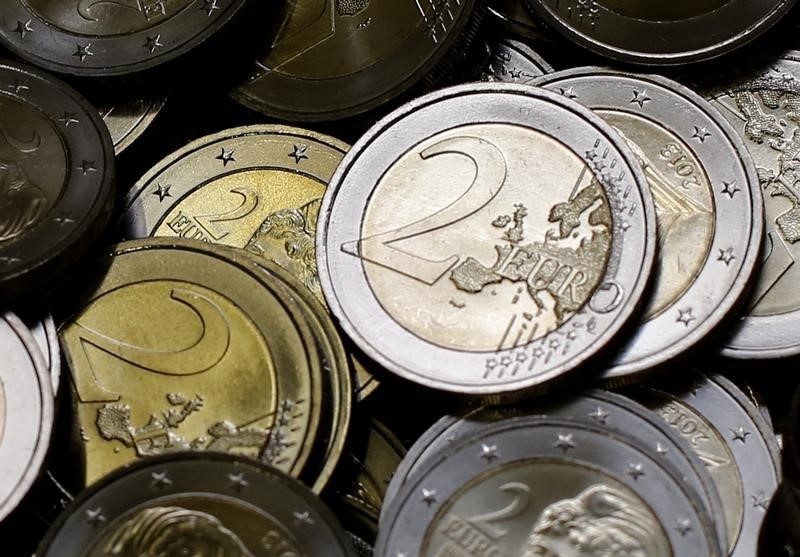* Italian polls show hung parliament, rise of anti-europarties
* Euro draws support from German coalition deal
* Dollar hampered by concerns over trade war
By Hideyuki Sano
TOKYO, March 5 (Reuters) - The euro clawed back earlierlosses on Monday but remained prone to volatility as earlycounts in Italian elections pointed to stronger-than-expectedresults for euro-sceptic parties, with no major party blocswinning an outright majority.
The common currency found some support as Germany's SocialDemocrats (SPD) decisively backed another coalition withChancellor Angela Merkel's conservatives.
The euro EUR= traded at $1.2333, slightly above its lateU.S. levels, off its seven-week low of $1.21545, which ittouched on Thursday.
Exit polls and early counts showed Italy's 5-Star Movementis likely to be the largest single party by a wide margin, aprojection a prominent deputy from the party called a "triumph". centre-right bloc, made up of former prime ministerSilvio Berlusconi's Forza Italia, and the far-right League andBrothers of Italy, is set to win most seats but is seen fallingsome way short of an absolute majority. full results not expected for a few hours or more,market reaction has been limited so far but investors are likelyto take fright at any suggestion the 5-Star could form acoalition with the right-wing League.
Exit polls suggested the two forces would have enough seatsto govern together and they have in the past shared stronganti-euro views. While the League still says it wants to leavethe single currency at the earliest feasible moment, the 5-Starsays the time for quitting the euro has passed.
"On the whole, the results appeared to be in line with priorpolls. The focus now is whether the League will become thebiggest party in the centre-right bloc. In that case, there's achance the bloc could fall apart," said Hideki Kishida, senioranalyst at Nomura Securities.
The euro started the week on a solid footing as two-thirdsof SPD members supported the coalition, clearing the way for anew government in Europe's largest economy after months ofpolitical uncertainty. U.S. currency was also on slippery footing afterPresident Donald Trump last week proposed tariffs on importedsteel and aluminium, raising fears of retaliation from its tradepartners that could trigger a trade war.
"I would think the market will soon digest European politicsand shift focus back to the trade issues, in which case thedollar is likely to come under pressure," said Yukio Ishizuki,senior strategist at Daiwa Securities.
The dollar was softer against the yen at 105.43 yen JPY= ,near Friday's 16-month low of 105.24.
Bank of Japan Governor Haruhiko Kuroda said the BOJ wouldconsider an exit from its ultra-easy monetary policy if it metits inflation target in the next fiscal year from April 2019. will be looking at confirmation hearing in theparliament by two nominees for BOJ Deputy Governors, MasazumiWakatabe and Masayoshi Amamiya. (Editing by Kim Coghill and Sam Holmes)
